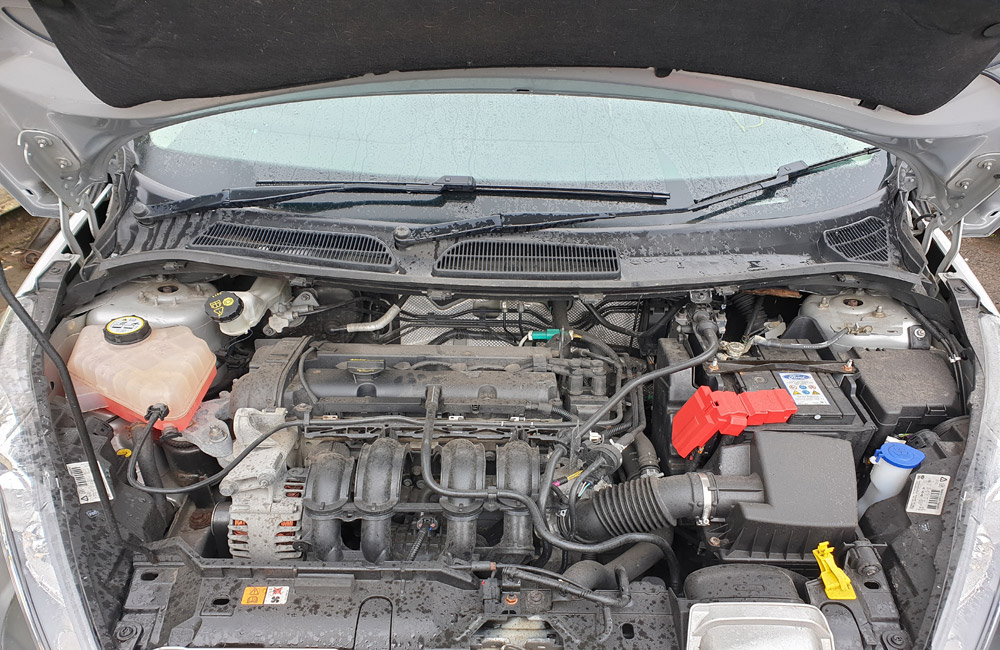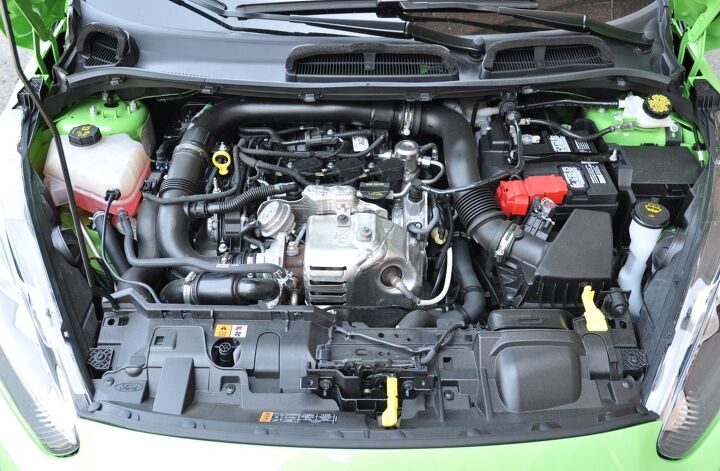Top Ford Fiesta Engine Repairs to Avoid Costly Damage
Top Ford Fiesta Engine Repairs to Avoid Costly Damage
Blog Article
The Future of Engines: Technologies Driving Sustainable Power Solutions
As the vehicle sector navigates the essential shift in the direction of sustainability, the future of engines is significantly defined by groundbreaking advancements. Electric engine innovations, along with promising growths in hydrogen fuel cells and biofuels, are reshaping the landscape of power services.
Electric Engine Advancement
The development of electric engine developments represents an essential change in the aerospace and vehicle sectors, driven by the immediate demand for lasting choices to fossil fuels. This transition is characterized by significant advancements in battery modern technology, power electronics, and electrical motor layout, which jointly improve the efficiency and performance of electrical engines.
Current advancements have actually resulted in the development of lighter, more energy-dense batteries, such as lithium-silicon and solid-state batteries, which guarantee longer varieties and much shorter charging times. Additionally, renovations in electrical motor effectiveness, such as making use of irreversible magnets and progressed cooling systems, make it possible for electrical engines to run successfully under varying conditions. These improvements not just improve vehicle efficiency but likewise contribute to a decrease in overall power consumption.
Furthermore, the integration of innovative software formulas has actually maximized energy management in electrical cars, enabling regenerative stopping and anticipating billing methods. As producers increasingly embrace electrical propulsion, the automotive and aerospace markets are witnessing a standard change in the direction of greener technologies. This advancement not just satisfies governing demands yet also lines up with customer choices for ecologically friendly transport remedies, strengthening electric engines as a foundation of future lasting wheelchair.
Developments in Biofuels
As the automotive and aerospace sectors progressively prioritize sustainable power resources, developments in biofuels become a corresponding solution to electric engines. Biofuels, stemmed from natural materials such as crops, waste, and algae, provide an innovative opportunity for reducing greenhouse gas discharges and dependence on nonrenewable fuel sources.
Recent study has actually concentrated on enhancing the performance and sustainability of biofuel production. Second-generation biofuels use non-food feedstocks, reducing competitors with food supply and decreasing environmental effect. Furthermore, advancements in synthetic biology have actually made it possible for the engineering of bacteria to produce biofuels better, leading to higher yields and lower production costs.
Additionally, the development of drop-in biofuels permits seamless integration into existing infrastructure, allowing a smoother change for sectors commonly based on nonrenewable fuel sources. ford fiesta engine. These gas can be made use of in present engines without modifications, facilitating their fostering across numerous sectors
Investments in biofuel modern technology, along with encouraging policies, are necessary to drive innovation and scalability. As the international community looks for to deal with environment change, biofuels offer a practical, immediate option that straightens with the overarching objective of sustainability in transport and aviation.
Hydrogen Gas Cell Innovation
An expanding number of researchers and business are checking out hydrogen fuel cell technology as a viable choice to traditional power sources in transportation and power systems. This technology transforms chemical power from hydrogen into electrical energy via an electrochemical reaction, click reference with water as the only byproduct, making it an eco friendly option.
The core of hydrogen fuel cells is the fuel cell stack, where hydrogen molecules are split right into protons and electrons. The flow of electrons produces power, while protons move through a membrane layer to integrate with oxygen from the air, creating water. This procedure leads to high efficiency and reduced emissions, positioning hydrogen fuel cells as an important gamer in the shift to lasting power.
Considerable developments have been made in enhancing the longevity and efficiency of gas cells, alongside decreasing expenses with cutting-edge production techniques. In addition, the development of hydrogen production techniques, such as electrolysis powered by sustainable energy resources, enhances the sustainability of the general system. As infrastructure for hydrogen refueling expands and manufacturing methods end up being extra reliable, hydrogen fuel cell technology holds fantastic promise for decarbonizing numerous sectors, consisting of durable transportation and stationary power generation.
Hybrid Equipments and Their Effect
Crossbreed systems stand for a considerable evolution in lasting engine technology, merging traditional interior combustion engines with electrical propulsion to optimize energy efficiency and minimize discharges (ford fiesta engine). This double technique allows lorries to make use of both power resources, enabling better flexibility in energy usage and lowering dependence on nonrenewable fuel sources

In addition to environmental advantages, crossbreed systems use consumers a viable change in the direction of totally electric cars. They alleviate array anxiousness by combining the convenience of gasoline with the advantages of electrical propulsion, making them an eye-catching alternative for a wider target market.
The Duty of AI in Engine Style
Leveraging innovative formulas and maker understanding strategies, the automobile sector is increasingly integrating synthetic knowledge (AI) right into engine design procedures. AI improves the efficiency and effectiveness of layout by evaluating large datasets to recognize ideal setups and efficiency criteria. This ability allows engineers to mimic numerous operating conditions and forecast engine behavior under numerous situations, significantly lowering the time and price associated with standard prototyping methods.
In addition, AI promotes the advancement of innovative materials and combustion procedures tailored for sustainability. By optimizing fuel performance and reducing exhausts, AI-driven layouts straighten with worldwide initiatives focused on reducing the carbon impact of automobile engines. Artificial intelligence algorithms can also anticipate upkeep requirements, leading to boosted reliability and durability of engine components.
Additionally, AI contributes in the assimilation of electrification innovations, such as crossbreed systems, where it can maximize battery monitoring and energy recovery processes. As the sector relocates towards more sustainable power remedies, the pop over to these guys role of AI in engine style becomes increasingly crucial, driving advancement and boosting the efficiency of future engines. Eventually, the collaboration between AI and engine layout browse this site declares a brand-new period of smarter, cleaner, and a lot more reliable automotive modern technologies.

Final Thought
In final thought, the future of engines is being formed by a convergence of cutting-edge modern technologies that focus on sustainability. Electric engine advancements, biofuel developments, hydrogen gas cells, and hybrid systems collectively add to a substantial reduction in exhausts and ecological impact.
Electric engine innovations, alongside appealing developments in hydrogen fuel cells and biofuels, are improving the landscape of power options. In addition, renovations in electrical motor effectiveness, such as the use of permanent magnets and progressed cooling systems, enable electrical engines to operate successfully under differing problems. By optimizing gas performance and minimizing discharges, AI-driven designs straighten with worldwide efforts aimed at lowering the carbon footprint of auto engines. As the sector moves in the direction of even more sustainable power remedies, the function of AI in engine layout ends up being increasingly vital, driving innovation and improving the performance of future engines. Electric engine improvements, biofuel developments, hydrogen gas cells, and crossbreed systems jointly contribute to a significant reduction in exhausts and environmental influence.
Report this page